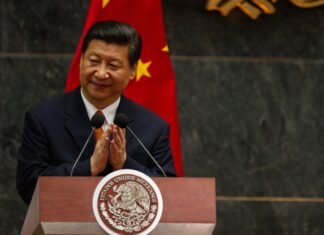Bernard Arnault, CEO of the luxury conglomerate LVMH and the wealthiest individual in France, recently voiced serious concerns regarding a proposed tax on fortunes exceeding 100 million euros. This plan, which suggests a 2% tax rate on such substantial wealth, has sparked significant debate within the country. Arnault labeled the initiative an „attack on the French economy,” positioning it as a product of extreme leftist ideology.
Arnault’s criticisms highlight a broader tension in France between wealth accumulation and taxation. As someone who has played a pivotal role in shaping the luxury market and promoting French brands globally, he feels that this tax could deter investment and innovation, potentially stymying economic growth. He argues that imposing heavy taxes on high-net-worth individuals may lead to a flight of capital, where wealthy individuals and businesses seek more favorable environments elsewhere, ultimately weakening France’s economic position.
The proposal for the wealth tax comes amid ongoing discussions about how best to address economic disparity and ensure that the wealthiest individuals contribute their fair share to society. Advocates of the tax claim that it could generate significant revenue, which would be beneficial for public services, social programs, and infrastructure improvements. They argue that those with substantial fortunes have a moral obligation to support the broader community and help reduce inequality.
However, Arnault and others in the business community warn that such measures could have unintended consequences. They believe that instead of fostering a more equitable society, this tax could drive away prospective entrepreneurs and investors who might otherwise have contributed to job creation and economic vitality. By framing the discussion in ideological terms, Arnault emphasizes the potential risks associated with extreme fiscal policies that could harm the very fabric of the French economy.
In light of these concerns, there has been considerable back-and-forth in France’s political arena regarding the feasibility and impact of the wealth tax. Some politicians are calling for a more balanced approach that includes incentives for investment and innovation, rather than punitive measures that could stifle growth. This debate mirrors a larger global conversation about wealth distribution, economic policy, and the role of taxation in an evolving economic landscape.
Arnault’s stance as a significant business leader lends weight to the conversation, as he embodies the heights of success in the luxury sector. He advocates for an environment that encourages entrepreneurship and nurtures creativity. Furthermore, he points to numerous examples where high taxation has led to diminished growth and a retreat of talent, contrasting sharply with more favorable policy environments in other nations.
As the dialogue continues, it will be crucial for policymakers to consider the perspectives of both advocates for social equity and those like Arnault, who caution against punitive taxation. Finding a middle ground that promotes economic growth while addressing social concerns could be key to ensuring France remains a competitive and thriving nation on the global stage. The outcome of this debate will likely have long-lasting implications for the future of both the economy and society as a whole.






